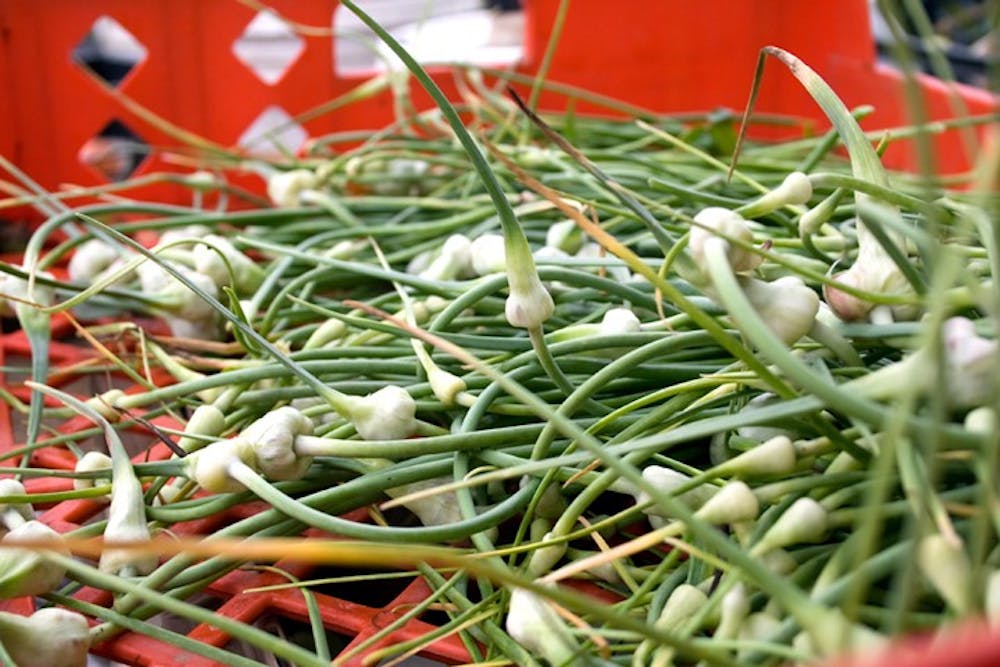The AU base of the Community Supported Agriculture program has shown a drop in membership this year from last year’s total of 16 participants.
Allan Balliett, a farmer from West Virginia, runs the program at AU and said 16 is a little less than half of the number of participants he would like to have in order to continue CSA at AU.
The program is part of the national Community Supported Agriculture program. The United States Department of Agriculture and the Alternative Farming Systems Information Center promote the program to support sustainable farming.
EcoSense teamed up with Balliett to promote the CSA program, which allows students to buy a share in Balliett’s farm and in return receive a bag of food every week from his crop.
Balliett thinks participation is low because people at AU do not realize the program exists, he said.
However, Balliett still believes there will be enough sign-ups for the CSA at AU for him to continue delivering food here.
EcoSense President Jennifer Jones said the club will advertise the program in their listserv and at meetings for the next several weeks.
The program started at AU five years ago when students requested more environmentally-friendly grown food. EcoSense partnered with Balliett to bring speakers on campus to discuss the relationship between good farming and environmental quality, according to Balliett.
On the CSA Web site, students can buy a share in Balliett’s farm, located in Shepherdstown, W.Va., and receive food dropped off on campus every week from June to October.
Students receive a full grocery store shopping bag of produce, ranging from seven to 10 items, according to Balliett. The produce delivered each week varies with the season, he said.
Balliett said he grows a huge array of traditional kitchen vegetable crops, like corn, peppers, sweet potatoes, parsnips and basil.
Students can choose from different shares: a nine-week share that starts with classes in September and costs $225, a one-person, 18-week share that starts in June for $425, or a standard full share that starts in June for $600.
Balliett’s produce includes fewer toxins, more nutrition, no growth hormones and no antibiotics, he said. Buying a share supports local agriculture by maintaining a nearby, environmentally-friendly farm, according to Balliett.
“We all have to eat,” Balliett said. “Our health comes from eating the best food possible.”
The CSA helps farmers set themselves apart from the economic principles that cause them to become more oriented to money and product, which causes the creativity in farming to be lost, he said.
“Essentially, farming is an art,” Baillett said. “It works from inspiration that things should only be done at the right time.”
Julie Munro, a senior in the College of Arts and Sciences and EcoSense sustainable agriculture specialist, said she thinks the program is beneficial because it shows people where their food originates.
“We’ve all become so disconnected from our food sources, and being on a first-name basis with your farmer is a real departure from that ... one that I think everyone should experience,” Munro said.
She also emphasized that CSA has less of an environmental impact because the food is traveling a shorter distance, so less carbon is emitted into the atmosphere.
CAS senior Alex Mensing formerly participated in CSA and said the only drawback to the program is that you cannot predict what produce you are going to get each week.
“There is certainly an element of surprise,” he said.
The best thing he made with his CSA produce?
“Thai curry with bell peppers, hot peppers, eggplant and basil from the CSA. That was delicious!”
You can reach this writer atnews@theeagleonline.com.





